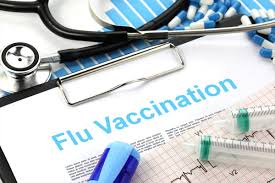Influenza – commonly known as flu – is an unpredictable virus that will cause mild illness in most people. However, it can cause severe illness and even death among vulnerable groups of people, including disabled people, people with a long term health condition, older people, pregnant women and people with an underlying health condition.
This year, with Coronavirus putting us all at risk, it is essential to get as much prevention as possible against flu. All frontline health and social care workers should get the winter flu vaccination – including all Personal Assistants (PAs). For the first time, this year, PAs will be able to access the vaccine free of charge from GPs and community pharmacies.
According to the NHS’s flu vaccine website the vaccination is important because:
*if you’re at higher risk from Coronavirus, you’re also more at risk of problems from flu
*if you get flu and Coronavirus at the same time, you may be more seriously ill
*it’ll help to reduce pressure on the NHS and social care staff who may be dealing with Coronavirus.
However changes have been made to make sure it’s safe to have the flu vaccine at GP surgeries and pharmacies. These changes include social distancing, hand washing and wearing protective equipment. It’s important to go to your appointments unless you or someone you live with has symptoms of coronavirus
To access the scheme, PAs will simply need to attend a GP surgery or community pharmacy and identify themselves as a PA. If they need to prove thet are a PA, they can use and show this letter of entitlement ( to be completed by their employer ).
The flu vaccine is offered free on the NHS to anyone with a serious long-term health condition, including:
*respiratory conditions, such as asthma (needing steroid inhaler or tablets), chronic obstructive pulmonary disease (COPD), including emphysema and bronchitis
*diabetes
*heart conditions, such as coronary heart disease or heart failure
*being very overweight – a body mass index (BMI) of 40 or above
*chronic kidney disease
*liver disease, such as hepatitis
*neurological conditions, such as Parkinson’s disease, motor neurone disease, multiple sclerosis (MS), or cerebral palsy
*a learning disability
*problems with your spleen, for example, sickle cell disease, or if you have had your spleen removed
*a weakened immune system as the result of conditions such as HIV and AIDS, or taking medicines such as steroid tablets or chemotherapy
You should talk to your doctor if you have a long-term condition that is not in one of these groups. They should offer you the flu vaccine if they think you’re at risk of serious problems if you get flu.
For people with learning disabilities there is an easy read poster, and easy read leaflets.





